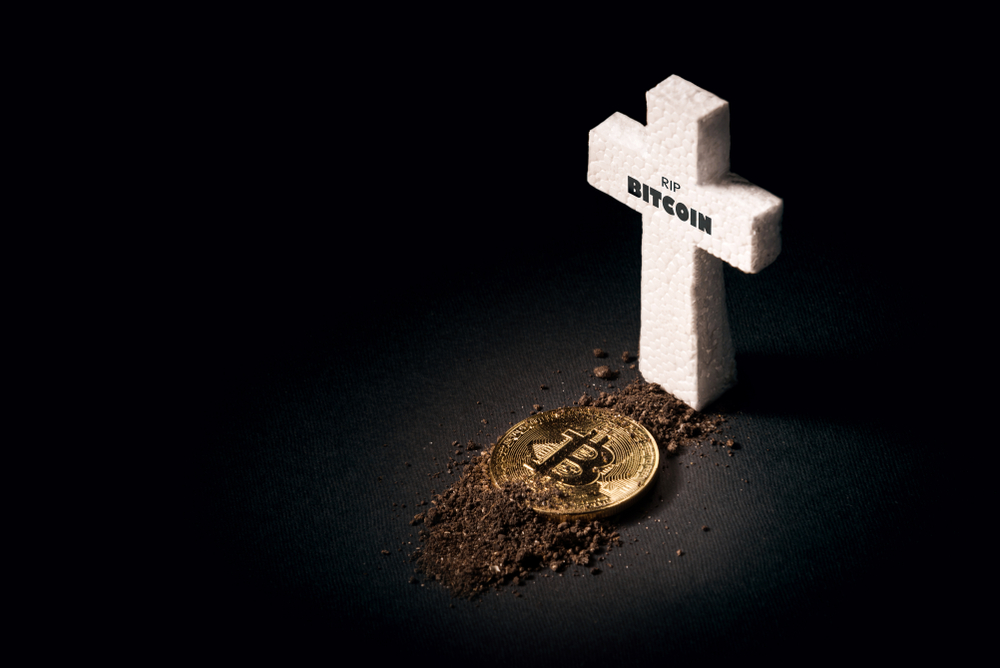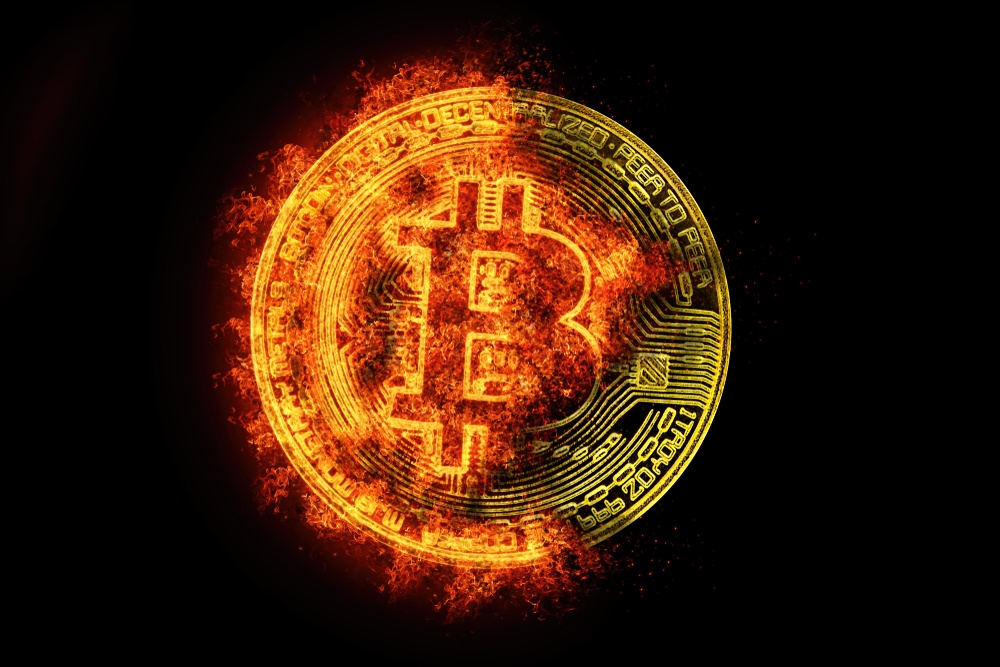[ad_1]
Move over, Jamie Dimon, because there’s a new contender for the coveted title of “king bear of the bitcoin-bashing brigade”: technologist Nicholas Weaver.
Technologist Nicholas Weaver Rants Against Bitcoin
While he might not have the mainstream name recognition of Jamie Dimon, or Warren Buffett, or even Nouriel Roubini, Weaver – a senior researcher at the International Computer Science Institute at Berkeley – has proven that he can sling bitcoin barbs like the best of them.
Speaking during the latest episode of Bloomberg’s Odd Lots podcast, Weaver, who previously said that blockchain and cryptocurrency should both be “burned with fire,” wasted no time in heaping more insults on the nascent asset class, alleging that anyone with any actual technical knowledge immediately understood that bitcoin was “bovine excrement” when it first appeared on their radars in the early 2010s.
“So what happened when the cryptocurrencies first came out in 2010 and 2011 is most people who looked at it with technical understanding went, “Oh, this is bovine excrement, and walked away.”
Why is bitcoin just bovine excrement? Because while it might use cryptography, it utterly fails as a currency, leaving proponents with “very few non-criminal uses.”
“The big fatal flaw is that it doesn’t actually work as currency. If you can’t use it as a competitor to all the other actual digital currency systems we have, like, oh, PayPal…. All of these payment systems are vastly more efficient than the cryptocurrencies, unless you’re interested in criminal activity.”
3 Reasons Cryptocurrency Fails as Money [Plus a Bonus]

Berkeley’s Nicholas Weaver is not optimistic that bitcoin will ever develop into a reliable payment tool for anyone other than criminal enterprises. | Source: Shutterstock
Weaver says that cryptocurrency fails as money for three reasons.
First, bitcoin’s immutability makes it difficult to acquire since sellers must take enhanced precautions to avoid chargebacks like the one that grifted $75,000 from Apple co-founder Steve Wozniak.
Second, cryptocurrency is difficult for the average person to hold securely, as demonstrated by the prevalence of hacks targeting both crypto exchanges and individual wallets.
Finally, Weaver alleges that cryptocurrency is far too difficult to spend.
“The dirty little secret is the merchants who say they accept cryptocurrency…aren’t actually accepting cryptocurrency,” he said, noting that they instead use third-party conversion services such as BitPay or Coinbase Commerce.
Unable to stop himself at three, Weaver further indicted cryptocurrencies such as bitcoin for operating on a deflationary model, which incentivizes saving and punishes spenders (Note: not every cryptocurrency is deflationary).
“As we remember our economic history from the Great Depression, the only thing worse than inflation is deflation,” he said. “These cryptocurrencies are supposed to be deflationary, which means if you, say, buy a pizza back in 2010, you end up dining on regret when” the price surges as the result of a speculative bubble.
2 Ways to ‘Burn [Bitcoin] with Fire’

Nicholas Weaver says that the US government could destroy bitcoin by taking down stablecoin issuer Tether. | Source: Shutterstock
Goaded by Bloomberg hosts Joe Weisenthal and Tracy Alloway, Weaver concluded the podcast by war-gaming the two scenarios that could lead to the collapse of the cryptocurrency sector, or in his words, “burn the system with fire.”
The first is that the US government could take down Tether, the company behind the USDT stablecoin that serves as a proxy for the US dollar on the vast majority of cryptocurrency exchanges. The second is that proof-of-work (PoW) cryptocurrencies like bitcoin could enter a “death spiral.”
He explained:
“There’s two things that can really burn the system with fire. The first is the federal government getting their act together and going after this cryptocurrency called Tether….If Tether is destroyed, that…removes the entire bitcoin exchange ecology.”
“Number two is…[a] death spiral situation,” he said, warning that if the bitcoin price falls too precipitously then the network would lose its security as unprofitable miners flip off their machines.
Still, Weaver takes comfort in the fact that, if nothing else, at least cryptocurrency is “comedy gold.”
Listen to Weaver’s full half-hour-long rant here.
[ad_2]
Source link
